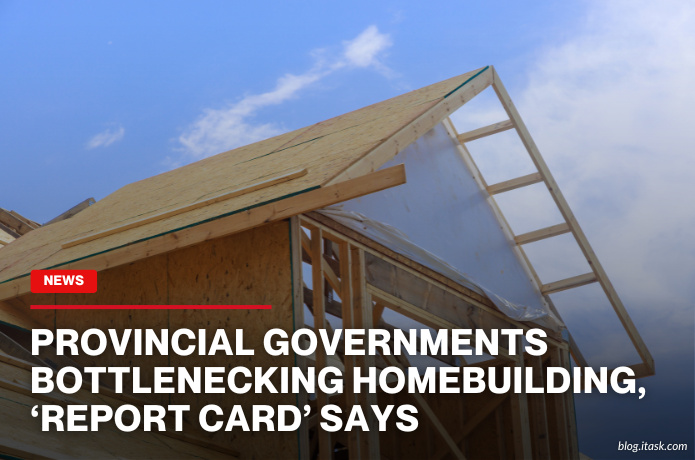Provincial governments bottlenecking homebuilding, ‘report card’ says
Provincial governments bottlenecking homebuilding, ‘report card’ says

A new report card from the Task Force for Housing and Climate highlights how provincial governments across Canada are slowing down efforts to build more homes. The task force, co-chaired by former Edmonton mayor Don Iveson and former federal Conservative deputy leader Lisa Raitt, examined current policies on fast, quality, and environmentally responsible home construction. Every province received a grade of C or lower, while the federal government scored a B.
The report’s author, Mike Moffatt, pointed out that provinces often avoid blame while cities and Ottawa get most of the criticism. He said that provinces have the most control over housing policies but have often done the least to improve the situation. The task force emphasized that strong provincial leadership is key to cutting red tape and increasing the number of homes being built.
No province scored higher than a C+. British Columbia, Quebec, and Prince Edward Island were tied with the best results but still underperformed. B.C. earned a C+ despite supporting denser neighbourhoods, mainly due to delays in permit approvals and high costs. Alberta got the lowest grade, D+, even though Calgary and Edmonton are building homes at a strong pace. The report noted that these successes came from local action rather than provincial leadership.
The report also showed that within provinces, performance varies a lot. Saskatchewan and Ontario did well in keeping homes away from flood and wildfire areas, but struggled to allow more housing density. The report said provinces need to update building codes, improve mapping of risk zones, and reduce the burden of development charges.
Although the task force only judged policies that are already in effect, it did mention signs of improvement. Ontario’s Bill 17, for example, aims to speed up permits, simplify development fees, and help cities plan infrastructure better. On the federal side, the Housing Accelerator Fund has pushed cities to reform zoning rules, though the report suggested stronger tools are needed to make sure those changes actually happen.
The task force said this report card will be updated yearly to track progress. Moffatt stressed that provinces must take ownership of the housing issue rather than pass the blame. Since they control zoning and development laws, he said it’s their responsibility to step up and support both private and public efforts to build the homes Canadians need.
